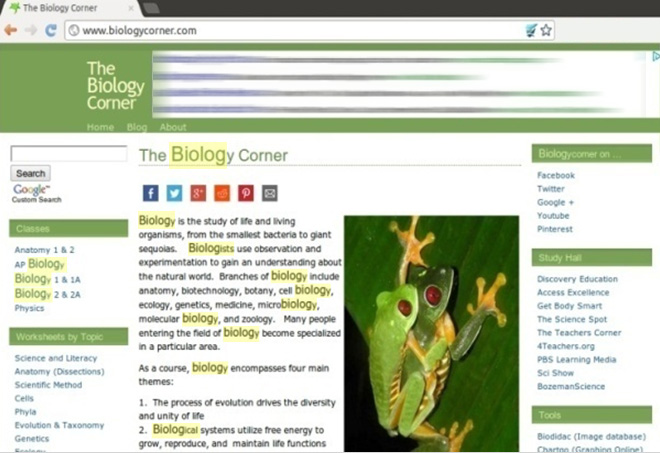Upon initial assessment of the keyword density of the following web page for example (see image 1), we can derive that the site is seemingly all about biology. There exists about 30 biology-related keywords within the content. Also prominent are “anatomy”, “living organisms” and other words and phrases.

Image 01: The zvelo automated classification engine appropriately determined this web page as Science-Biology
Scrutinizing the website’s content deeper also reveals that it takes on an informational context and likely serves as an educational resource. This is further solidified due to other keywords used like “classes”, related to Educational Institutions, or “frogs”, tied to Pets-Other. As such, it is not viable to limit the categorization of the web page to one category, or topic, alone. Multiple category values are better suited here. Again, this content and context assessment takes mere seconds to perform with the human eye.
For millions upon millions of content + context categorization requests, the zvelo automated classification engine is trained to perform the same analysis leveraging keyword density, among many more factors. zvelo systems are capable of handling ultra-fast classification requests to yield the most accurate category value or values. In the biology website example depicted, and based on the most granular taxonomy from the zveloDB URL database, the best website categorization ended up being Science-Biology.





